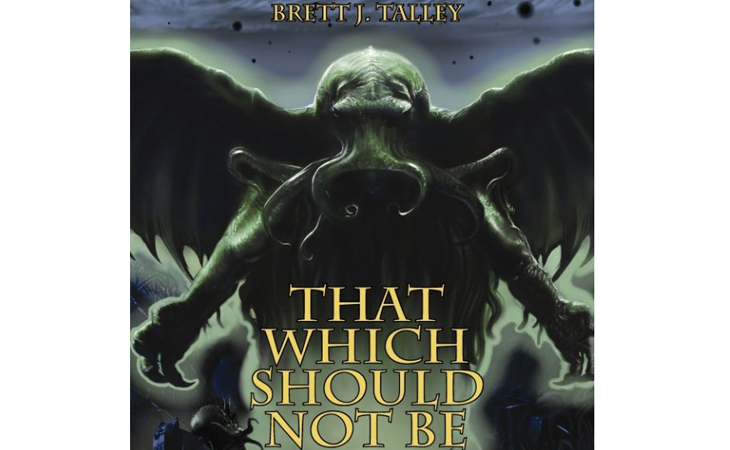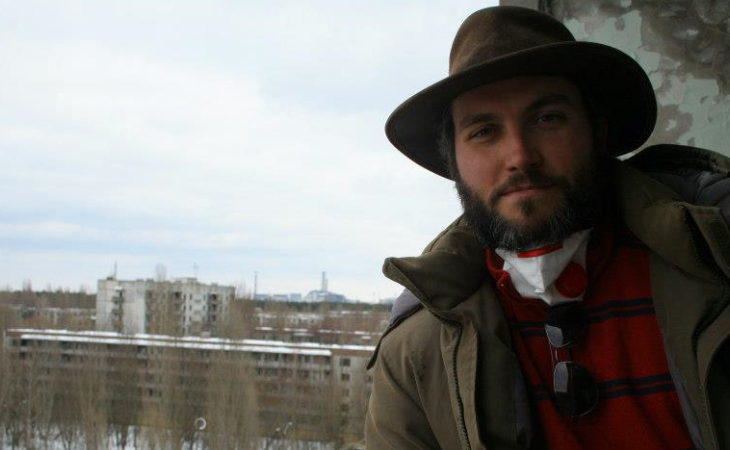What are your favorite mystery/horror stories?
That’s a great question. Generally speaking, I like stories that are filled to the brim with atmosphere. I don’t care for gore all that much, and I don’t judge a book by its body count. It’s the feeling of unease it generates, of the uncanny. There’s a scene in a great—but difficult to finish—book called House of Leaves. If you’ve read the book, you know how it can get in your head. And the best example of that is right at the beginning. A friend calls another friend up and asks him to come over to his apartment. He wants to show him something. There’s nothing to indicate it’s going to be anything unusual. Nothing, that is, except the writing. The protagonist can feel that something is off, and we feel it with him. That scene hooked me so hard that even when I wanted to throw that book against the wall, I kept going. That’s an achievement.
If I had to list some of my favorites, I’d say “The Statement of Randolph Carter” by H.P. Lovecraft, “The Mourning House” by Ronald Malfi, and, to throw a movie in there, Lake Mungo.
What inspired you to pen your first novel?
Well. My first novel was a literary fiction romance road trip coming of age story. Never quite got that one published… That Which Should Not Be, my first published novel, came about probably like so many other books. The idea just literally popped into my head. I imagined a group of men, meeting in a pub on a seaside during a storm, sharing stories to pass the time. Once I started, I decided to make it a gothic tale, as I thought that was most appropriate. I borrowed (stole?) from a lot of different traditions, most notably Lovecraft, and the book basically wrote itself. It’s the most fun I’ve ever had writing a book, and I would say it is still my best work.
How do you develop your plots and characters? Do you use any set formula?
Not really. I honestly try and do things a little different each time. I like to challenge myself. Whereas my last two books, The Void and The Reborn, have been more traditional in the character development route, That Which Should Not Be is almost like a first-person role-playing game. The main character, Carter Weston, has a pretty strong character arc, but he’s not the most developed character in the novel because the reader is actually seeing through his eyes as he experiences the other tales. I’ve had people tell me that Carter’s story is their least favorite. The sequel is going to be very different, and hopefully people will enjoy that experience too.
In your book, That Which Should Not Be, you use many real legends and scriptures and unlike many horror stories, you do not use gore to scare people, what inspired you to go with this direction?
You know, H.P. Lovecraft once said that the oldest human emotion is fear, and the strongest fear is fear of the unknown. And he was right…to a point. I think that the greatest fear is not something you have no conception of, something you can’t understand, that you can’t even fathom. It is the everyday made extraordinary. It is when you twist what should be the known and make it an unknown. An ordinary room in the daytime can become terrifying at night. The worst zombies are not the hordes of the undead, but the mother and father you once knew. Take your home town and remove everyone from it. Now that’s creepy. So I think adding that veracity to the story by tying in things people are familiar with makes it all the more haunting. I’ve had people tell me that they never knew when the story ended and the history began and vice-versa. That’s the effect I wanted to achieve.

As for the gore, I think gore can be scary, but frankly I think it simply works better in a visual medium. There is gore in That Which Should Not Be, but it is very sparingly used, and I think that makes it more effective.
What, in your opinion, are the most important elements of good writing?
That’s an excellent question. Command of the language is important, not so much strict adherence to the rules of grammar but knowing what they are and when you can break them (which is quite often). Pacing is critical. Readers are easily bored these days, and while I don’t think writers should necessarily cater to that, they do need to take it into account. Fearlessness is also important, and not in the way people always mean. I know writers who worry about everything. They worry if they are saying something that’s been said before. They worry about whether or not their characters are going to offend someone. They worry that they are too long-winded or not long-winded enough. Just tell the story that’s in your heart. You will offend someone. They probably do talk too much. And no matter what you write, someone will compare it to some other book you’ve probably never even read. That’s fine. Just do it.
What are the ingredients of a blockbuster story?
Characters and plot, simple as that. The biggest blockbusters have both. Characters don’t necessarily have to be likable, but the reader needs to like them, if that makes sense. Quite whining that you have to have a plot, and a strong one. Even literary fiction has plots, no matter how much they want to tell you it doesn’t. Writing is the culmination of thousands of years of story-telling, and the name says it all. You must tell a story about people, and it must be a story people want to hear about involving people they care about.
How would you increase literacy?
I believe strongly in capitalism. If you had told me you’d give me five bucks for every book I read (and could adequately explain on a test or whatnot), I would have read a lot more. Now, money is tight in education, so that probably isn’t feasible, but reading should be fun. Teach the classics, but intersperse them with books that are just plain enjoyable to read. Whether it’s Harry Potter, the Hardy Boys, Twenty Thousand Leagues Under the Sea or even the horrid Twilight books, get kids started reading what they like and they will graduate to the more complicated stuff. But it has to start off being fun, not as a chore, not as work, not as something to hate.
What story do you enjoy reading over and over again?
The Great Gatsby. It’s the perfect book. Not a word out of place. Not a missed beat. Not a misstep in pacing or dialogue or characterization. Read it dozens of times.
And since this is Halloween, I’ll also throw out A Night in the Lonesome October, which I read every single year. There’s a chapter for every day of the month, the main character is a dog, and he is fighting The Great Old Ones. What more do you need?










